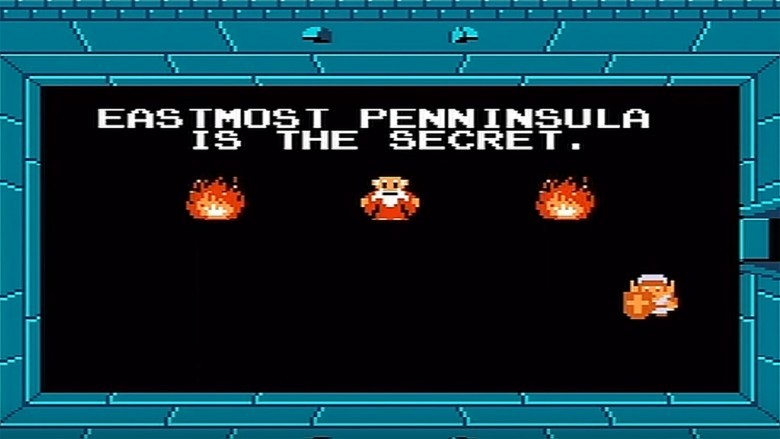Nintendo Fixes The Legend Of Zelda Typo 29 Years Later
Before the Switch became the Nintendo device that nobody could get their hands on, the NES Classic Edition—a mini plug-and-play version of the original Nintendo Entertainment System—played that part, and played it well. Now, the console's supply slowly meets its demand (and the Switch siphons off some of the NES Classic Edition's heat), more people are finally getting their hands on the throwback machine, and they're discovering that some of the NES Classic's included games don't play quite like they remember.
Obviously, the NES Classic Edition offers a few features that weren't found on the original console—save-anywhere functionality makes getting through many of those unforgiving retro games a lot easier—but some eagle-eyed fans noticed that the games themselves have changed, too. For example, Nintendo corrected a typo in the English version of the original The Legend of Zelda, fixing a mistake that was almost 30 years old.
The very-slightly improved version of the game has been on the NES Classic Edition since launch, but most people didn't notice until yesterday, when author Clyde Mandelin (who wrote an entire book about Zelda's Japanese-to-English translation) pointed it out on Twitter. In the original version of the game, an old man tells Link, "Eastmost penninsula is the secret" (emphasis added). That's wrong. "Peninsula" only has one N. As Mandelin's tweet confirms, the typo is nowhere to be seen in the NES Classic Edition's version of Zelda. At long last, the grammatical nightmare is over.
It took them 30 years and two revisions, but the typo has been fixed 😆 pic.twitter.com/tpH8zxTmF6
— Mato (@ClydeMandelin) April 5, 2017
This (admittedly small) fix is notable for two reasons. For one, The Legend of Zelda has been re-released a number of times, and while some reissues fixed many lingering spelling and grammar mistakes, this one's never been touched. Secondly, as Kotaku notes, the line of dialogue doesn't make any sense whether it's spelled correctly or not. In fact, the line doesn't even exist in the Japanese edition of the game, in which the man says, "You can't use arrows if you run out of money," instead.
Obviously, this isn't that a big of a deal, but it's an interesting bit of trivia for fans of Zelda and retro games. As seen in some of these underrated NES games, many old titles went through some pretty big changes when they traveled from Japan to the US, and the differences between regional releases is one of the most complex and interesting topics in the video game industry's young history.

